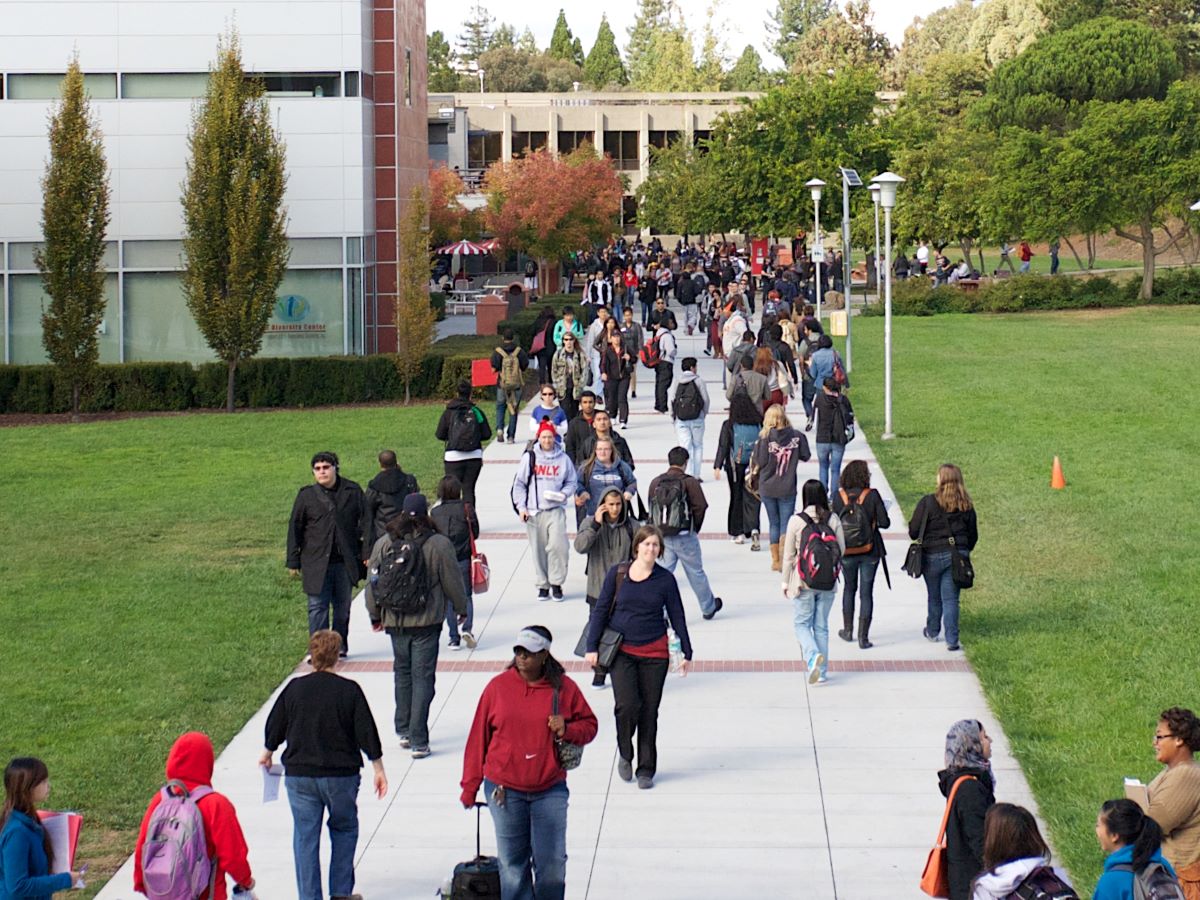
The Student's Journey
A student’s journey with Accessibility Services can begin any number of ways. Below are some common examples:
- A freshman who received accommodations through an IEP (Individualized Educational Plan) or 504 Plan in high school.
- A transfer student who received accommodations through their previous college’s DSS or DSPS [Disabled Student (Programs &) Services] office.
- A continuing student whose classes have begun to pose academic barriers due to a new or changing disability.
- A student who suspects they have a disability, but has never been diagnosed.
- A continuing student who has been referred to our office by a member of the campus community.
HOW TO REFER A STUDENT
Referring a student to our office doesn't need to feel awkward. Disability is a common experience for university students. Nationally, 20% of students report having a disability (Fast Facts: Students with disabilities (60) (ed.gov).
How do you inform a student that you believe they might have a disability because they are experiencing difficulty in your course? Here are a few ideas:
- Ask if they have experienced similar difficulties in previous courses, perhaps even going back to their primary education.
- Mention Accessibility Services as one of a number of different support services that could help, along with offices such as SCAA and the various SEAS programs.
- Mention that the difficulty your student is experiencing is similar to difficulties some of your other students have encountered, and that Accessibility Services have helped them.
- If they mention recently going to Student Health & Counseling Services, you could mention that they might qualify for our services.
The key to ensuring students feel supported in connecting with our office is to normalize the experience of having a disability. While stigma and bias around disability is still real, there are steps you can take to ensure that it is reduced or eliminated in your classroom.
FIRST CONTACT
When a student wants to discuss academic accommodations, or is referred to Accessibility Services for the first time, they can reach out using one of the following methods:
- Contacting our Front Desk Coordinator by phone at 510-885-3868
- Emailing our Front Desk Coordinator at as@csueastbay.edu
- Visiting us in person at LI 2400 (located across from Starbucks, in the Library Annex Building)
Once a student reaches out, a Welcome Meeting appointment is offered with one of our Accessibility Counselors. There is no application process, but we do ask that students submit any documentation they might have about their disability. Only basic information like the student’s name, NetID, and contact information is gathered when making this initial appointment; the rest of the student’s information is collected during the Welcome Meeting.
WELCOME MEETING
During the welcome meeting, the student and Accessibility Counselor discuss the student’s experiences, focusing on the barriers presented by the educational environment. Additionally, students may present documentation related to their disability, however it is not required in order to meet with an Accessibility Counselor.
Through this interactive process, it is common to discover that a student has more than one disability, or intersecting identity, that impacts their access to the educational environment. The result of this discussion is typically providing the student with a list of academic accommodations that is located in the AS Portal. It is from there that the student will request that you be notified of their selected accommodations at the beginning of the term.
ACCOMMODATION IMPLEMENTATION
Students who have accommodations that require preparation on the part of Accessibility Services register for their courses and request their accommodations.
Before the start of the term, or early on in the term, the student will will request that you be notified of their selected accommodations at the beginning of the term. This official notification comes in the form of an email from their Accessibility Counselor via our Accessibility Services email account (as@csueastbay.edu).
You and the student should discuss the accommodations and how they will be implemented within two weeks of receiving notice of the student’s accommodations. If there are any questions or concerns regarding the implementation of the student’s accommodations, you or the student will reach out to the student’s Accessibility Counselor. If a student has one or more of the “agreement accommodations", they should be discussed between you, the student, and their Accessibility Counselor.
If there are any questions or concerns regarding a student’s accommodations please reach out to the student’s Accessibility Counselor prior to meeting with the student. The counselor’s name and email appear at the bottom of the notification email for each student. You can also reach us at as@csueastbay.edu or 510-885-3868.